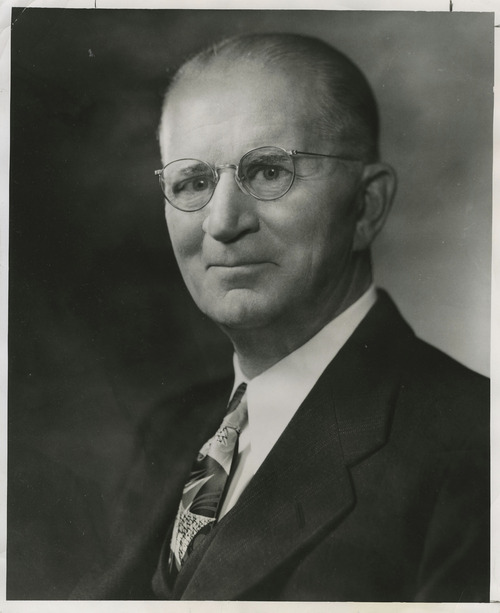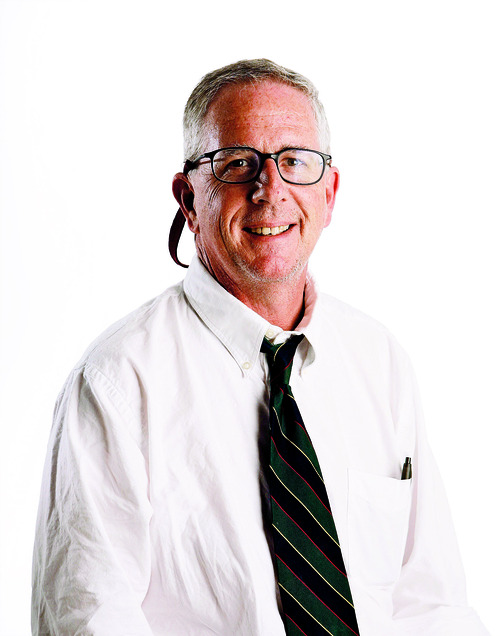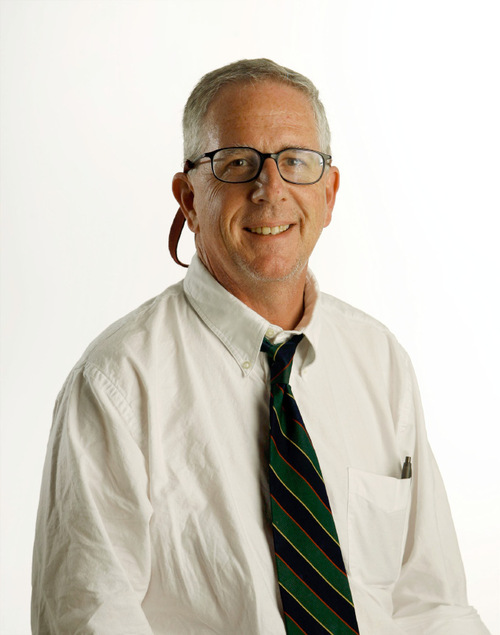This is an archived article that was published on sltrib.com in 2013, and information in the article may be outdated. It is provided only for personal research purposes and may not be reprinted.
Monday will mark the 142nd anniversary of the founding of The Salt Lake Tribune on April 15, 1871, but for my family, this year is the centennial.
On May 26, 1913, my grandfather, John F. Fitzpatrick, wrote a letter to Sen. Thomas Kearns, owner of The Tribune, seeking employment as his personal secretary: "Not only am I a first-class stenographer, thoroughly versed in spelling, punctuation, diction, grammatical construction and composition," he wrote, "but have the initiative and ability of execution to take up and diplomatically handle correspondence and other matters without dictation, and in line with your desires."
Kearns took him up on it, and, through determination and circumstance, the young Irishman from Iowa went on to become a part of Utah history. A century later, his grandson still can't get the ink out of his blood.
J.F., as he was known, quickly proved himself adept at all things managerial. When Kearns died in 1918 after he was hit by a car in downtown Salt Lake, his widow turned to 30-year-old J.F. for help.
He oversaw the Kearns family assets, which included The Tribune and extensive interests in mining, and he also ascended to become publisher of the newspaper in 1924 and remained so until his death in 1960.
During the early and mid-20th century he used the power of the press, and his awareness of changing times, to forge a new relationship between Mormons and non-Mormons in Utah. With both sides eager to end religious infighting for the social and economic benefit of all Utahns, he turned from The Tribune's historic antagonism of Mormonism.
In 1952, he and LDS President David O. McKay established a business partnership between The Tribune and the Deseret News so both editorial voices could be maintained. That partnership continues. Through the 1950s and until his death, J.F. sat down every Thursday morning for breakfast at the Hotel Utah with McKay and the secretary of the Salt Lake Chamber of Commerce, Gus Backman. It was said that the fate of Utah was regularly decided at that table.
J.F. was a devout Roman Catholic whose work on behalf of the Diocese of Salt Lake City was recognized by Pope Pius XII, who named him a knight in the Order of St. Gregory. He also received an honorary doctorate from Brigham Young University for his work on behalf of uniting Utah. It spoke volumes not just about who he was as a man, but also what his newspaper is: an independent source that puts all Utahns first. When Time magazine wrote his obituary, it was titled "The Peacemaker."
J.F.'s second-oldest son, Jim, my father, worked as a writer and editor for The San Francisco Chronicle and the Oakland Tribune before returning to Utah and The Salt Lake Tribune in the early 1960s. Jim was the arts and culture editor here until he died in 1967. I was 9 years old.
So when I started working for the paper as a "copy boy" nine years later, it wasn't like I was a stranger. In fact, it was the warm embrace and sense of humor of The Tribune staff that hooked me. In the 36 years since, I have been a reporter, an editor, an editorial writer, a managing editor and now deputy editor.
Of course, everything surrounding the newspaper business has changed, and there is much J.F. would not recognize. In fact, The Tribune is not just a newspaper anymore. It's a multi-platform news organization. But what remains is his positioning of The Tribune at the crossroads of Utah life.
And now it's on me to help keep it rolling into another century.
Tim Fitzpatrick is deputy editor of The Tribune. He can be reached at fitz@sltrib.com.







